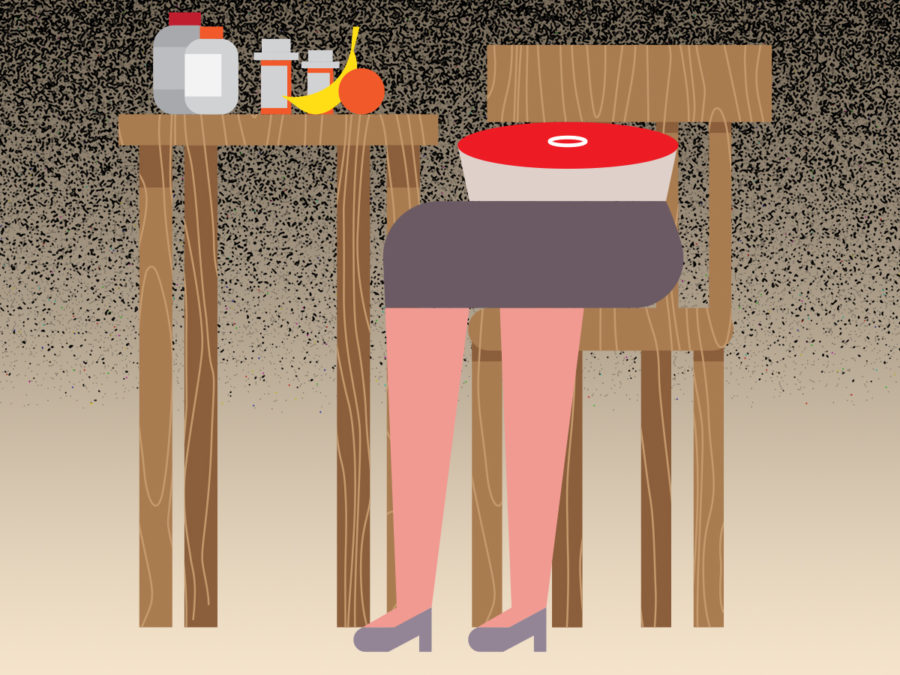Hamel: Diet culture is harming our health more than helping
“We, as regular human beings, just want to feel and look healthy. We have so many diet plans that can be personalized to exactly what we need so that we can be healthy, but what does ‘healthy’ really mean and what does it look like?”
January 29, 2020
The civil war between your mind and body is harming your health more than helping. If you search online “diets” on your good ol’ Google search engine, some of the first titles you will see is “Nutrisystem Official Site | Weight Loss For Your Body Type,” “Noom: Weight Loss Program | Dieting Shouldn’t Be Painful,” “5 Questions body type quiz | Reveal your right diet plan” and “28-day Weight Loss Diet | Your Complete Keto Diet Plan.” We, as regular human beings, just want to feel and look healthy. We have so many diet plans that can be personalized to exactly what we need so that we can be healthy, but what does “healthy” really mean and what does it look like?
The diet industry wants us to believe that “healthy,” at least visually, consists of minimal body fat, slim waists and size zero clothing. And this applies to both men and women. Here are your dietary options: high-fat, high-protein, low-carb, keto, low-sodium or gluten-free. (This list is not inclusive.) The most common diets, however, are low-carb and keto: the elimination (or close to elimination) of carbohydrates in the daily diet. This is actually one of the most harmful someone could practice.
Notice the word “keto.” Keto is derived from the word “ketoacidosis,” which is a complication within diabetics that, due to the influx and high concentration of sugars, harms neural function and increases infection in extremities such as eyes, toes and fingers. Ketoacidosis can also cause severe brain damage. Although these sugars harm Type 1 diabetics, this does not mean the elimination of sugars will avoid this problem. Carbohydrates are essential for complete brain function and daily life.
Although these may seem helpful, the real civil war is between the diet industry and science. The diet industry is worth $72 billion dollars per year, which reaps the profits from weight loss programs and subscription-based diet plans. This economic advantage stems from forming a body image that actually is not healthy for us at all.
There is not any valid scientific evidence supporting that body weight, shape and size harm long-term health in individuals. In fact, body fat is supported for a variety of reasons. Fat on your stomach is an advantage. It is good for you. Fat on your stomach, not just visceral far, protects and insulates your organs. The diet industry is telling you what your body should look like, not the health industry. While the diet industry encourages diet plans for a “healthy” looking appearance, 85 percent of genetics dictates your body size and shape. Controlling 15 percent of your body shape will, maybe, make a minuscule difference.
High-fat diets are also harmful. High fat diets are a primary factor in contributing to myocardial infarction (heart attack) via atherosclerosis. Atherosclerosis is a build-up of fat in arteries, which can clog blood cells in the arteries to the point that it will cause a heart attack. After a heart attack or other thoracic patients, it is more than likely necessary for the patient to need diet therapy; however, diet therapy is not recognized as medical and, hence, does not qualify for insurance, even though diet contributed greatly to the patient’s issue. Only those diagnosed with chronic kidney disease or recently with diabetes can qualify for insurance-covered diet therapy.
Be careful about your dieting. Research the macromolecules and nutrients your body is missing out on if you decide to eliminate it from your diet. Elimination is not the solution to a healthier lifestyle and, throughout the years, its alarming increase continues to harm individuals in both short-term and long-term timelines.







